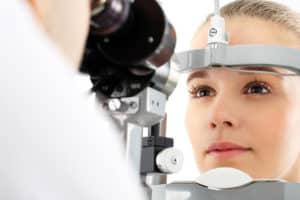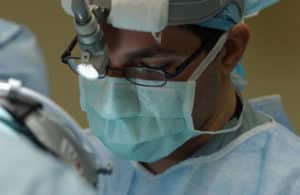Have you noticed your vision becoming blurry, as if looking through a foggy window? This issue might be more than a temporary nuisance; it could indicate the early stages of cataracts. Cataracts can cause the lens of your eye to become cloudy, gradually impairing your vision. This condition can turn everyday activities, like reading or recognising faces, into a struggle. In this blog, we’ll outline who is most at risk for developing cataracts by highlighting the key risk factors. Whether you’re worried about yourself or someone close to you, knowing these risks is key to looking after your eyes and keeping your vision clear.

Identifying High-risk Groups: Who's Most Vulnerable To Cataracts?
Cataracts can affect anyone, but certain groups are more susceptible due to a variety of factors. Let’s explore who these individuals are.
Older Adults
The risk of developing cataracts increases with age. Individuals over the age of 60 are particularly more susceptible, though the condition can occasionally be found in younger people, too.
Individuals With Extended UV Exposure
People who spend a considerable amount of time outdoors without adequate eye protection may be more susceptible to cataracts.
Smokers And Excessive Alcohol Consumers
Smoking and high alcohol intake can significantly elevate the risk of developing cataracts due to oxidative stress and damage.
People With Certain Health Conditions
Individuals diagnosed with certain health conditions, such as diabetes, obesity and hypertension, may be at a heightened risk for cataracts.
Those With A Family History Of Cataracts
Genetics plays a role in the development of cataracts. If you have a family history of cataracts, you may be more prone to developing them.
Preventive Measures To Reduce Your Risk Of Developing Cataracts
While some factors are beyond our control, certain lifestyle adjustments can mitigate the risk of developing cataracts.
Healthy Diet And Lifestyle
Incorporating a diet rich in fruits and vegetables, especially those high in antioxidants, and maintaining a healthy lifestyle can support eye health.
Wear Protective Eyewear
Shielding your eyes from harmful UV rays is important. Opt for sunglasses that offer 100% UV protection to minimise direct exposure to sunlight, which can accelerate cataract formation.
Regular Eye Examinations
Routine eye check-ups can help detect early signs of cataracts and other eye conditions. Early detection can be important for timely intervention and maintaining good eye health.
Limit Alcohol Consumption
Excessive alcohol intake can contribute to the development of cataracts. Moderating your alcohol consumption can play a role in preventing cataract formation.
Navigating Treatment Options
When it comes to treating cataracts, early intervention plays an important role in preserving vision and offering a wider range of treatment options. The primary method of cataract treatment involves the surgical removal of the clouded lens, which is typically replaced with a clear, artificial intraocular lens (IOL) to restore vision. Advances in surgical techniques, such as phacoemulsification, allow the cataract to be removed through a small incision, leading to quicker recovery.
Laser-assisted cataract surgery offers enhanced precision and may lower the risk of complications. The presence of various IOLs, including multifocal and toric lenses, allows for vision correction tailored to individual requirements. By initiating the treatment process early, you can access a broader spectrum of treatment options, which can significantly improve the results of these interventions, helping you resume your daily activities with better vision.
Book Your Cataract Evaluation Today
Understanding the risk factors and taking proactive steps towards prevention can be important in managing the health of your eyes. At Pacific Eye Clinic, we aim to provide comprehensive eye care treatments, addressing a wide range of ophthalmological needs, including cataract surgery on the Gold Coast. If you’re concerned about cataracts or are seeking professional advice on maintaining optimal eye health, consider our ophthalmology clinic on the Gold Coast. Reach out to us today for a consultation and let us help you protect and preserve your vision with our professional care.
Author

Dr Marc Wei
Dr. Marc Wei is the principal specialist laser and cataract surgeon at Pacific Eye Clinic in Southport on the Gold Coast. He has 20 years of trusted experience in advanced laser cataract surgery and has completed more than 15,000 procedures over the course of his career.

Dr Marc Wei
Dr. Marc Wei is the principal specialist laser and cataract surgeon at Pacific Eye Clinic in Southport on the Gold Coast. He has 20 years of trusted experience in advanced laser cataract surgery and has completed more than 15,000 procedures over the course of his career.



